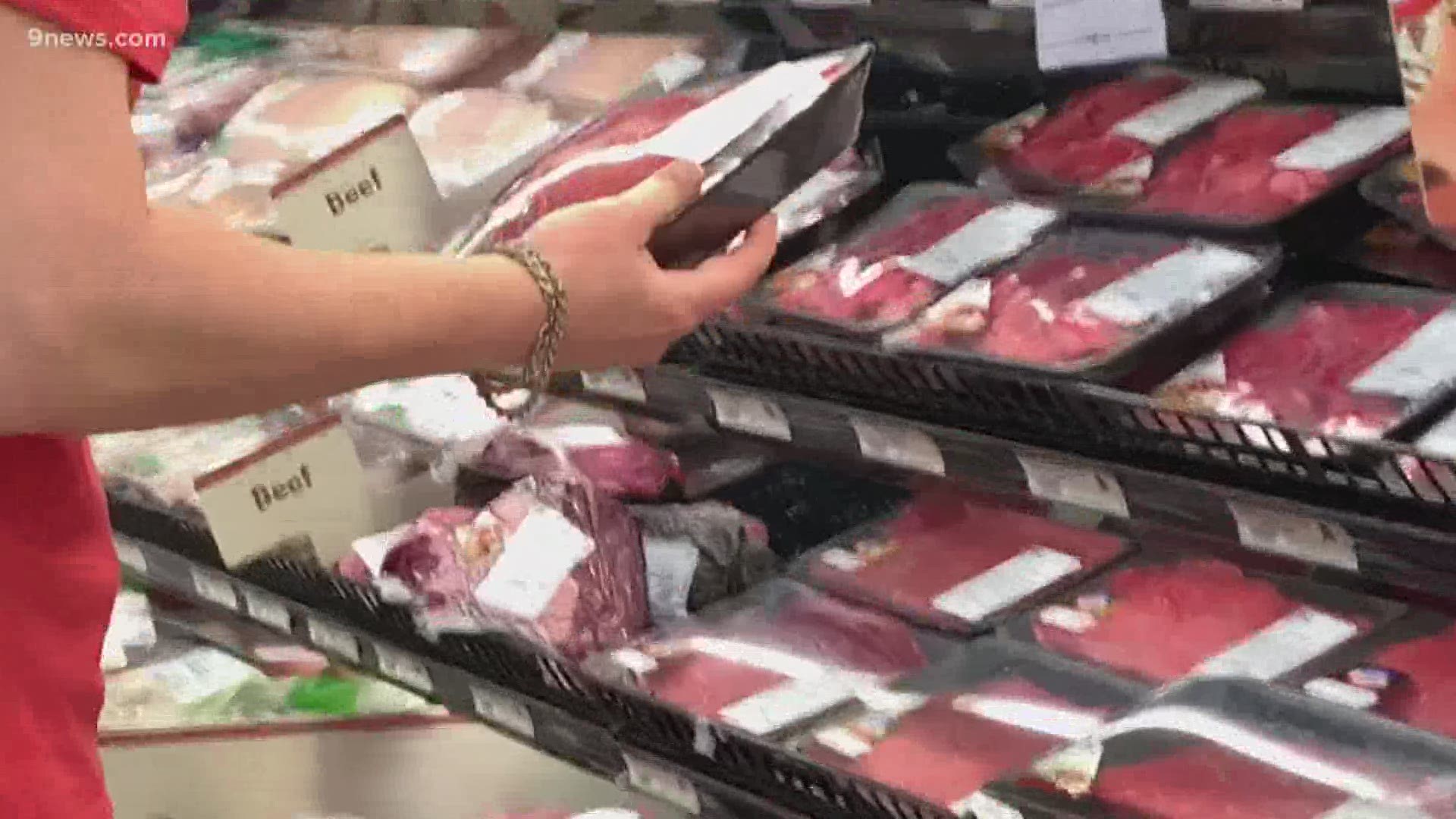DENVER — There have now been numerous weeks of empty meat cases, higher prices and in many cases, limits on how much beef we can purchase.
But, 9NEWS Senior Reporter Mark Koebrich has some good news: the Colorado Cattleman’s Association, the Colorado Farm Bureau and a local butcher all agree that the meat supply is starting to recover.
Daniel Rosacci and his 200 employees feed hundreds of customers every week through their network of Tony's Meats and Market stores. Like every butcher shop, Rosacci said they are especially sensitive to wholesale prices, which have been exploding.
"From January 2020 to May 2020, we saw that chuck, round, knuckles, brisket and flank (in the meat industry, these are known as ‘end meats’) seem to be hit the hardest," Rosacci said. "We saw 145% - 180% price increases on these incoming wholesale Items. The increases mostly affected your roast and ground beef prices as this is the product that we use to make our premium ground meats."
Rosacci said that another beef category called "steak primals" also saw significant wholesale increases.
"New York strip, ribeye, top sirloin, t-bones and tenderloin were up by 100% to 120% in wholesale prices," Rosacci said.
But, Rosacci said the tide is starting to turn.
"Typically in America we process about 550,000 head of cattle per week," Rosacci said. "Right now, a few weeks ago, it was down to about 400,000. So again, a lot of animals out there at pasture. But I believe the end is in sight, I think it's going to start softening."
Rosacci said he thinks prices have finally peaked, a trend that began in just the last week. He said in the next two to three weeks, you'll see additional softening of prices, more cattle moving to market and more beef in the stores.
Terry Fankhauser at the Colorado Cattleman's Association said he agrees.
"The processing plants are now working at 80-85% capacity, and more cattle are being harvested," Fankhauser said, adding that as a result, he believes prices are finally starting to soften.
Another impact of the pandemic? “Cuts” of beef will be larger.
"Because cattle are in the pasture or in feed lots longer than usual because of the problems in the supply chain, they are as you might imagine putting on weight, which means larger cuts,” Rosacci said.
Poultry remains an excellent value, Rosacci said.
"That industry has taken some small hits, but most poultry houses are back open and close to full production again,” he said.
And he adds that pork is recovering quickly as well.
RELATED: Health officials tour Cargill meatpacking plant, as union says employees test positive for COVID-19
"Wholesale prices for pork have almost doubled, but compared to beef, pork is for more affordable, with most high quality cuts under $7 to $8 a pound,” he said.
The Colorado Farm Bureau has spotted the trend as well. Taylor Szilagyi said the price story could get better even faster now that restaurants are starting to come back online.
But, grocery stores are the most significant retailer not seeing a recovery yet.
"Groceries went from 40% of the food supply to 90% almost overnight," Szilagyi said, adding their recovery is going to be slower.
Jessica Trowbridge of King Soopers agrees, saying they are still seeing incredible demand-and-supply problems, and as of yet, no relief in either category.
SUGGESTED VIDEOS | Local stories from 9NEWS

